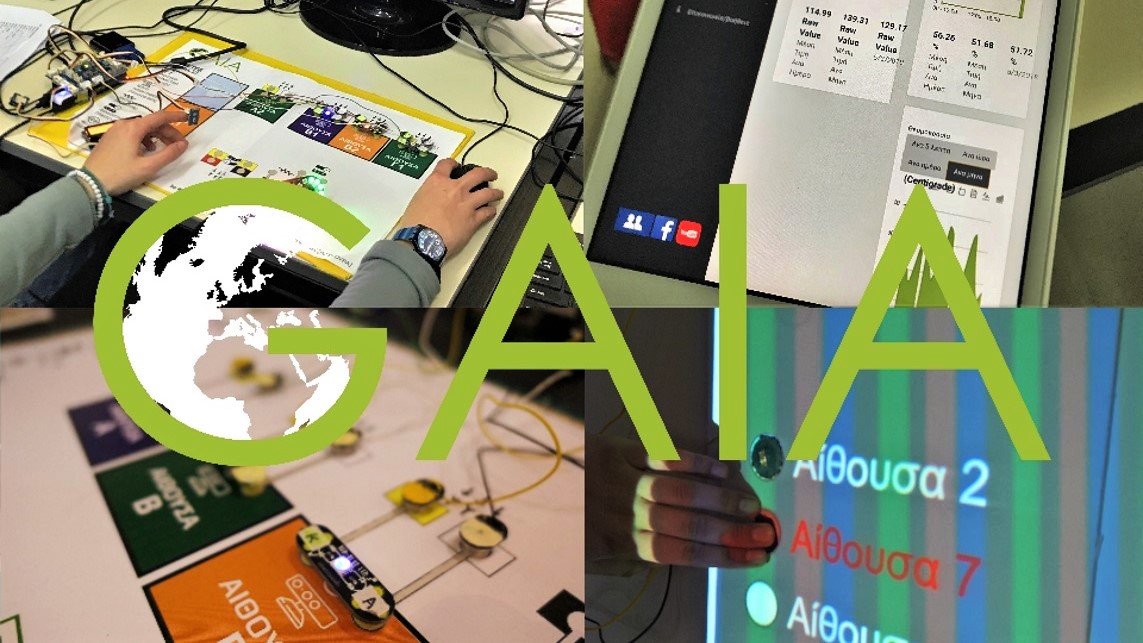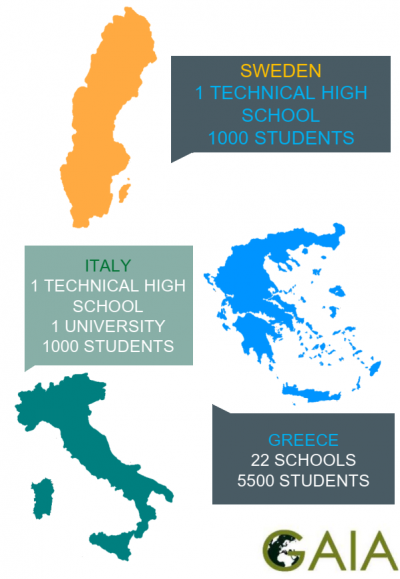
The Green Awareness in Action (GAIA) project is a European project in the frame of Horizon 2020 programme which focuses on the educational community, faculty, staff, students and parents at various levels of education, from primary and secondary to high schools and universities. Targeting energy efficiency in the context of the educational community is clearly very important due to a number of reasons:
- Raising awareness among young people and changing their behavior and habits concerning energy usage is key to achieving sustained energy reductions
- Educating children and young people to adopt energy-efficient habits will also indirectly affect their immediate family environment
- Buildings are the pivotal center of our lives
- Historically, energy expenses in schools have been treated as relatively fixed and inevitable
GAIA will create an innovative ICT ecosystem (including web-based, mobile, social and sensing elements) tailored specifically for school environments, taking into account both the users (faculty, staff, students and eventually parents through their children) and buildings (schools, universities, homes) that will motivate and support citizens’ behavioral change to achieve greater energy efficiency.
GAIA’s consortium includes a mix of private and public school entities, universities and administrative buildings in the educational domain to conduct a well-designed set of trials. It also covers a wide range of important fields, aiding a structured research approach. GAIA includes partners from 5 European countries, aiming for the implementation and testing of a pan-European approach, a mix that will guarantee a better match of the constructed solutions to the actual differences in lifestyle and behaviours related to the different cultures, as well as different requirements dictated by the variance in the physical environment.
A number of schools participate in the project by applying energy and sustainability-related educational scenarios, using the GAIA digital ecosystem. The schools are located in Greece, Italy and Sweden. The participating schools per country follow:
Greece:
- Ellinogermaniki Agogi (EA)
- Experimental Primary School of the University of Patras
- Experimental Junior High School of the University of Patras
- Experimental High School of the University of Patras
- Experimental High School of Laggouras, Patras
- 8th Junior High School of Patras
- 46th Primary School of Patras
- 1st Laboratory Center – Professional High School of Patras
- 1st Primary School of Psychiko, Athens
- 1st Junior High School of Nea Filadelfia, Athens
- 5th Primary School of Nea Smyrni
- 8th High School of Volos
- 8th Junior High School of Korydallos, Athens
- Primary School of Lygia, Lefkada
- 7th High School of Trikala
- 6th Primary School of Kaisariani, Athens
- 1st Junior High School of Rafina, Athens
- Talos Robotics Team, Volos
- Junior High School of Pentavryso, Kastoria
- Primary School of Megisti, Kastelorizo
- 2nd Primary School of Paralia, Patras
- Junior High School of Ekpaideftiria Panou
Italy:
- Gramsci Keynes School in Prato
- University of Sapienza (Rome)
Sweden:
- Söderhamn technical high school complex – Staffangymnasiet



